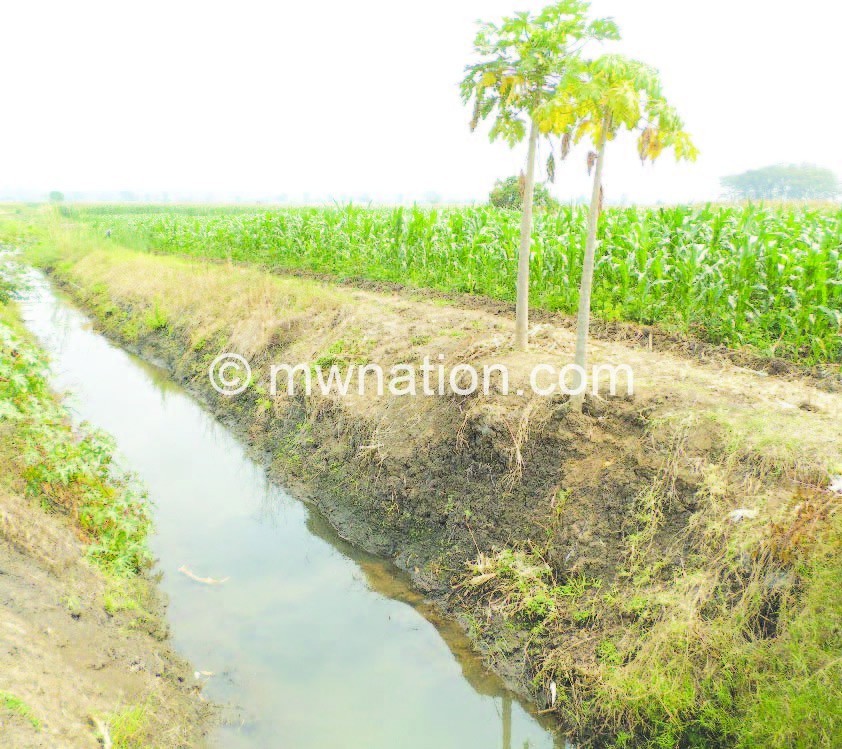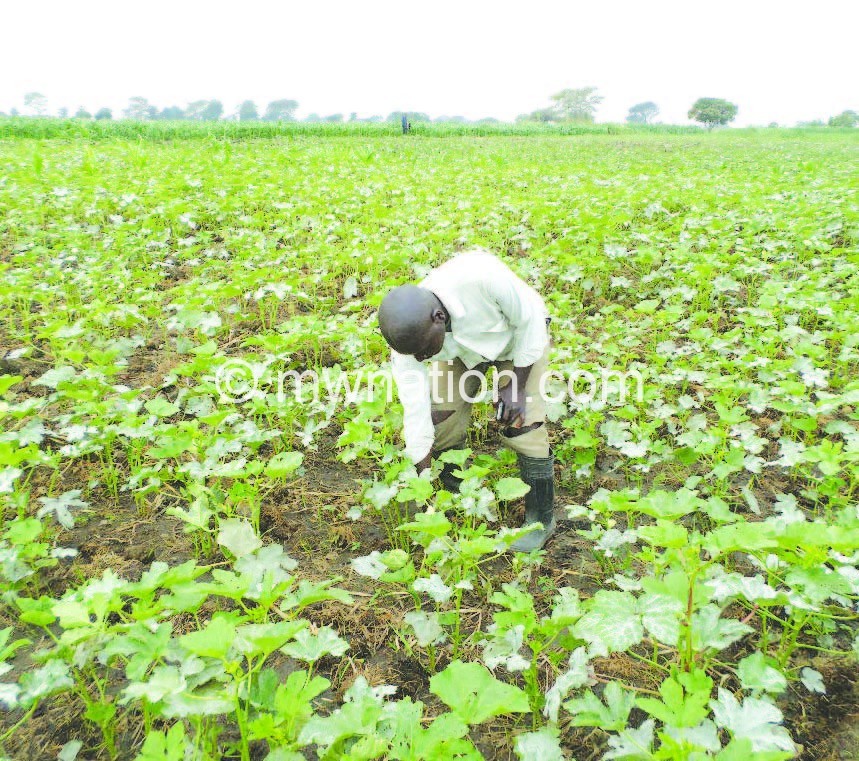Reaping more from irrigation
For decades, some farmers struggling with hunger in Neno District tilled fertile spots along a crocodile-infested section of the Shire River for bumper harvest.
Margret Thomas, 42, says her passion for irrigation farming was extinguished by frequent sights of the predator in the river which zig-zags past Kanono Village in Traditional Authority (T/A) Symon. As a result, many households along the riverbank were stuck in poverty.

“Irrigation is the way to go because rain-fed agriculture is not predictable anymore. The rainy season starts late and stops before crops are ready for harvesting. The growing season is mostly characterised by dry spells and hot weather,” narrates the mother of five.
Her food situation was worsened by effects of climate change, especially erratic rains and prolonged drought.
Now Thomas has embraced irrigation to beat hunger and poverty. The shift from rain-fed agriculture gives her household the advantage to harvest thrice a year.
However, frequent sights of crocodiles are no longer a setback as World Vision has constructed three canals to channel the water from the country’s largest river to plots of 381 farmers.
As a result, she no longer starves in the middle of plenty.
Thomas recalls: “It was like dying of thirst while standing in water. The river here is deep and wide. The water moves slowly, making it habitable for the predator, which used to attack people. We feared for our lives, so we could not fully utilise the river for irrigation.”
In Somisomi Village, Thembachako Kampeni says apart from waving bye to crocodile bites, farmers no longer suffer long walks to water their crops. Instead, the canals bring water where it is needed most.
“Carrying watering cans from the river to our fields was a back-breaking task even though our small plots could not produce enough food to take our families to the next harvest,” he says.
The modernisation of Chifide Irrigation Scheme has given 381 families the power to surmount hunger and poverty.
Since 2017, when World Vision constructed the canals, their livelihoods, income and food security have been improving—thanks to the water from the crocodile-infested river.
Thomas says the safe waterways offer farmers the ease to grow crops three times a year and reap full benefits of irrigation farming.

“Since irrigation has become safe and simple, I no longer experience food shortage. Last year, I harvested about 30 bags of maize from a plot which used to produce just three. I also increased vegetable production,’ she says.
Thomas says she has built a house roofed with corrugated iron sheets; bought livestock and motor bicycle; and provides basic needs for her children using the proceeds of irrigation farming.
Kampeni, 71, has bought more land to increase crop yields.
“My livelihood is improving. I grow and sell maize, potato, rice, tomato, egg plants and pepper. Irrigation has becoming my lifeline,” he says.
Paul Dayton Nandolo, chairperson of the farmers at the scheme, says irrigation farming has given him a new source of income.
He explains: “The earnings from farming helped me buy two cows and a plot in Chirimba Township, Blantyre, where I constructed four houses for rent.
“The income trickling in gives me the ease to pay school fees for my children and I plan to buy a family car by December.”
The 115-hectare scheme is the lifeline for 381 households in T/A Symon.
Charles Chimombo, World Vision director of operations, says: “We invested in Chifide irrigation Scheme to improve food security and economic status of the households.
“Our main objective was to improve the well-being of children in this area. We hope our technical support will help the farming households to become self-reliant, have decent lives and provide basic needs to children.”
World Vision is also working closely with the farmers to secure more profitable markets.
“There is room for the farmers to gain more from their sweat. We will encourage them to form marketing groups to have more bargaining power,” says World Vision irrigation specialist Chimango Mlowoka.
For Neno district chief agricultural, environmental and natural resources officer Patrick Msiyambiri, Chifide Irrigation Scheme encouraged their efforts to have sustainable irrigation farming in the district.





